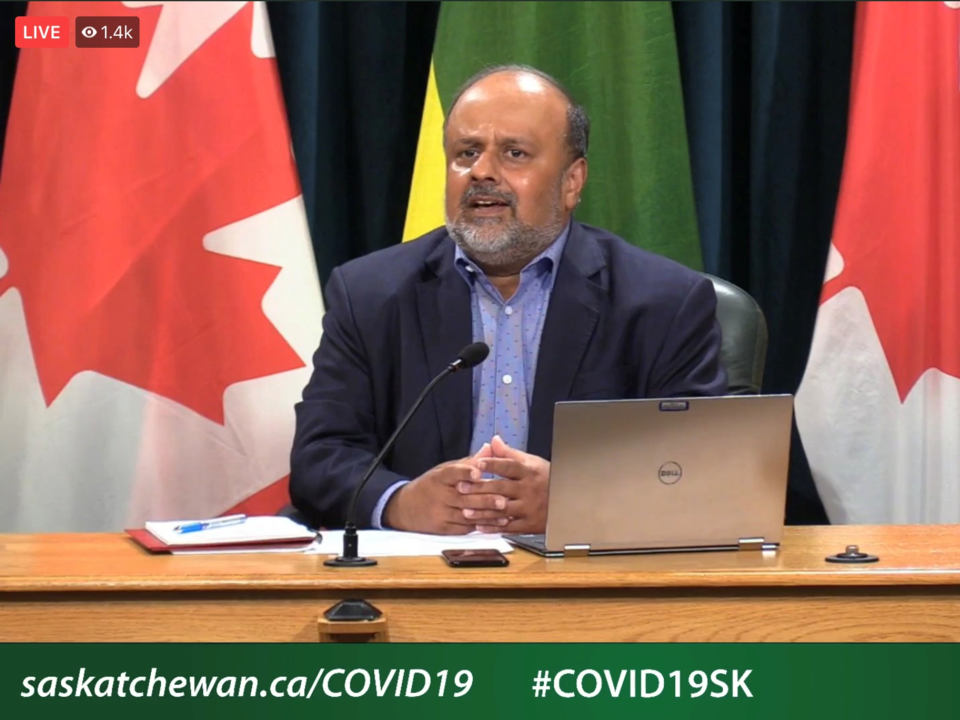Here are the highlights from the regular COVID-19 update from chief medical health officer Dr. Saqib Shahab in Regina:
Of the overall numbers, there are 14 new cases reported Thursday and 144 active cases throughout the province.
When compared to other parts of Canada, Dr. Shahab said their active cases were trending upwards, but not a surge. “We are not seeing the same surge that other parts of Canada in the world are seeing”.
They were seeing around 5 to 15 new cases a day. This was not unexpected, said Dr. Shahab, because of the schools’ and the economy reopening.
But he added it was important “to do everything we have been doing to keep this curve as flat as possible. It may not be as flat as it was at the end of summer, but even now we need to keep it at this level but we are currently as much as possible.”
Testing numbers continue to be good and very high, said Dr. Shahab. He reminded people that if they had symptoms or any concerns to “promptly get your test because you inform yourself about isolation, and your close contacts can be isolated. Through that testing and the case contact investigation, that is the most effective strategy in addition to all the steps we are taking individually to break the chains of transmission and that has happened very successfully as you see in Saskatoon, in Yorkton where we had specific transmission events.”
Dr. Shahab said they had expected to see occasional cases in schools. He reported have been 14 cases in schools with one school reporting four cases.
He reported there is no evidence of transmission within the schools. He said for two schools the issue has now been resolved but for most schools they see a case, public health does an investigation, and then people return to schools and there are no further issues. Again, he emphasized continuing to do what they were doing by maintaining physical distancing, hand washing, wear a mask where required and not going to school when unwell.
Dr. Shahab said this is a strategy that they will have to keep doing for the rest of the fall and winter. “These are behaviours that have served as well and it’s important that we continue to do what we have been doing to stay at the level that we are at.”




